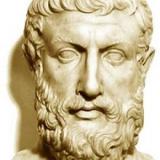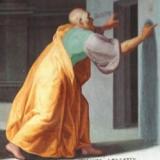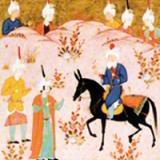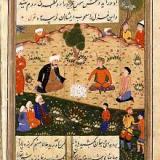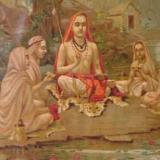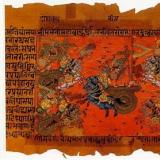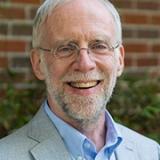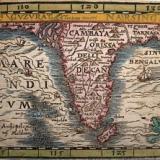Monism
Posted on
Peter discusses the "father of metaphysics," Parmenides, and his argument that all being is one.
Posted on
The paradoxes of Zeno and the arguments of Melissus develop the ideas of Parmenides and defend his Eleatic monism.
Posted on
Sufism, the mystical tradition of Islam, unites with philosophy in the work of Ibn 'Arabī.
Posted on
The Persian poet Rūmī and mystical philosopher al-Qūnawī carry on the legacy of Sufism.
Posted on
Peter is joined by Mohammed Rustom in a discussion about Sufi authors including Ibn 'Arabī, al-Qūnawī, and Rūmī.
Posted on
Śaṅkara and his “non-dual” (Advaita) Vedānta, which teaches that only brahman is real, and the world of experience and individual self are mere illusion.
Posted on
The grammarian Bhartṛhari argues that the study of language is the path to liberation, because the undivided reality underlying language is brahman.
Posted on
Francis Clooney joins us to discuss the religious and philosophical aspects of Vedānta.
Posted on
The impact of ancient Indian thought upon the Muslim scholar al-Bīrūnī and upon European thinkers like Hume, Hegel, and Schopenhauer.

